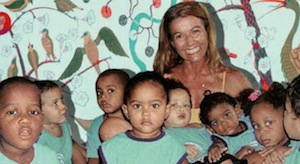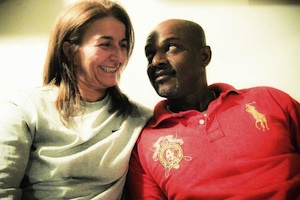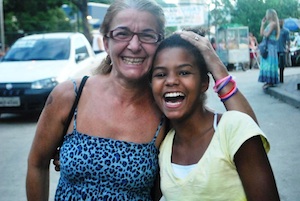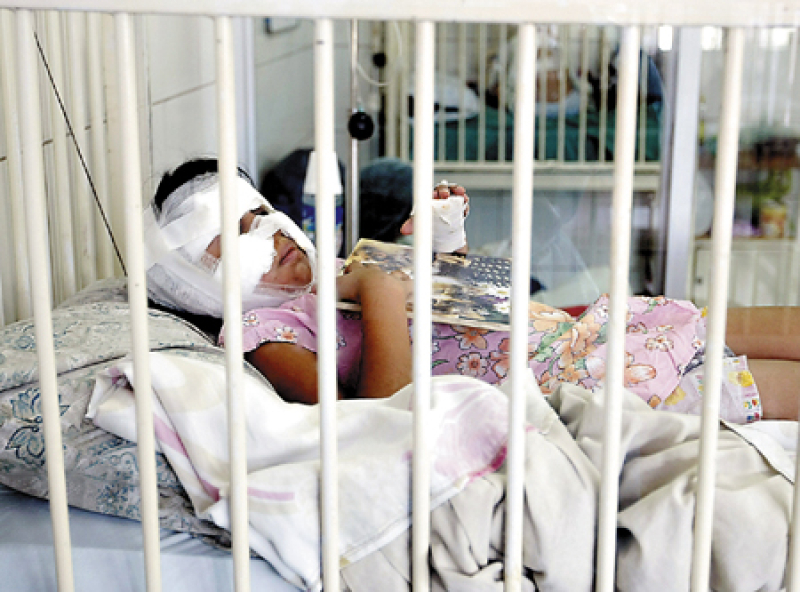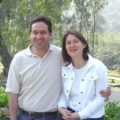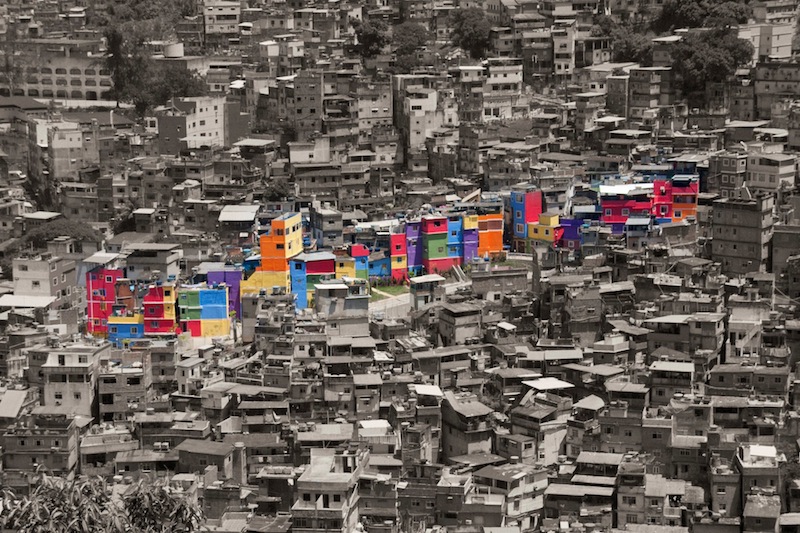
Barbara Olivi is Italian and lives in Brazil, precisely in the favela Rocinha of Rio de Janiero. There she has created something wonderful, about which she speaks extensively in this beautiful interview. Thanks a lot, Barbara! If you can, we ask you to support the project to which Barbara gives so much love, dedication and passion.
Dear Barbara, let me start by congratulating you for the website of Il sorriso dei miei Bimbi (The smile of my children: https://www.ilsorrisodeimieibimbi.org/): it is very well presented and clear, gripping and touching. It tells a lot about you and the project, what you do and how you got there. I would like to begin the interview by giving our readers a moment to get closer to you, asking the typical question, to which I expect a non typical answer: what brought you to Brazil?
Thank you for this space, Claudia. And I greet all the readers. My story is like that of many others, a dissatisfaction for living in a highly consumerist and selfish society, tired of a superficial life where what matters is what you have and not what you are. I left everything, including my entrepreneurial work (I worked in the family real estate agency). Some personal reasons (the end of a marriage) also contributed to accelerate the desire to fly (which I’ve always harbored in me, since I was a girl). And so, at some point in my life, I got to know the Rocinha favela, and met its children. And there I stopped. For them and for me. In Rocinha life pulsates and embraces you, fascinates and rejects you, knocks you in the suffering of others; a place where survival is a daily wager.
We cultivate the smile of a humanity apparently condemned, but that celebrates life in all of its manifestations, with a courage that ecompasses genius, power and magic.
 I read that The smile of my children was born thanks to your previous occupation in Rio, as a tour guide in the favelas. Would you like to tell us something about this work? I know by experience that, for a foreigner, penetrating profoundly “local” places that are deeply rooted in the history and situations linked to the territory, is the biggest challenge. Taking tourists there must be even more delicate. What was your experience?
I read that The smile of my children was born thanks to your previous occupation in Rio, as a tour guide in the favelas. Would you like to tell us something about this work? I know by experience that, for a foreigner, penetrating profoundly “local” places that are deeply rooted in the history and situations linked to the territory, is the biggest challenge. Taking tourists there must be even more delicate. What was your experience?
Exactly as you say. As a woman and gringa (a term used in Brazil to indicate a stranger) I had problems entering the labor market due to the social preconception that divides the middle class from the proletariat, or better yet a resident of the favela. My family and I have always traveled a lot (my father was a surveyor for AGIP, we lived for years in Africa) and when I arrived in the Cidade Maravilhosa I thought I could give my contribution to promote the beauty of the place. With perseverance and professionalism, I managed to gain the trust of many colleagues and tour operators, by exercising my profession and gaining credibility in the environment (a very “ruthless” and competitive one, I would say).
The residents of Rocinha welcomed me spontaneously and generously, certainly driven by my being so very humble, without prejudice and with a strong desire to contribute. This obviously also creates a weak side, an Achilles heel which can be easily attacked by those who glimpse in your being naïve, the opportunity to gain personal benefit. My prior experience in the Milan “boxing ring” has protected me from the greed of others, obvious and calculated, allowing me to pick out instead the good and sincere side of a humanity that I love and respect.
It should be noted that the favela has been known to the international headlines for the merciless war between drug traffickers and police, which ended only in 2011 with the entry of Unidade de Policia Pacificadora, after more than 40 years of the parallel (and undisputed) power of drug trafficking. For these reasons (that alone would be worth a separate chapter), touring the favela has always been a big responsibility, although the drug traffickers have never hindered the touring activities.
Over the years, tourism has been an important vehicle to arouse interest in the activities of the association and a powerful driving force of visibility. Many stories of friendship, cooperation projects and special meetings were borne during trips in the favela (Rocinha is considered the largest favela in South America and has more than 150,000 inhabitants).
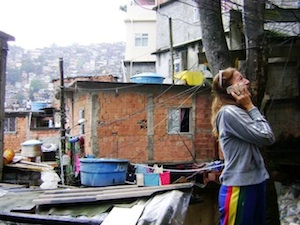 Tell us about the beginnings of The smile of my children. I can only imagine the excitement… How did you start? How did you get the funds to launch the adventure? And how did the families welcome you?
Tell us about the beginnings of The smile of my children. I can only imagine the excitement… How did you start? How did you get the funds to launch the adventure? And how did the families welcome you?
I arrived in Brazil in 1998, visiting a friend in Gávea, one of the “good” neighborhoods of Rio, near the Rocinha. The porter who worked in the building was a morador (inhabitant) of Rocinha. After months of chatting with him, he invited me to meet his family and the community. And that’s exactly what I had been waiting for!
One of the first images I remember, in my memory and in my heart, was the visit to a public school: there I saw a group of children brushing their teeth with the same toothbrush and then handing it, with pride and satisfaction, to the next in line. I remember that I called my mom and told her: “I need toothbrushes, a lot of them! ” We started from there, from those smiles, from that raw image which, in its ruthlessness, told us about a totally different but cheerful world, full of hope and the desire to live.
The name The Smile of my Children also comes from there, because when you enter the favela you can not help but notice how people, and especially children, smile at life, celebrating it in all its wonderful simplicity. My thoughts go out to my family (mother Anna and brother Marco in particular) without whom I would not be here to tell you about this amazing story that I have the privilege of living.
A year later, when I was already living in Rocinha and had promoted the first projects on education, I met my beautiful Julio, who married me and especially the cause, that today is strongly ours.
How is your life in Rocinha? How is your typical day?
A typical day does not exist! There are so many things to do, a thousand unexpected events to be solved and all the activities to monitor that you really don’t have time to get bored. I would say that the main focus is related to the activities of the projects: Pre-School, Youth Project, Literacy Project, Solidarity Tourism. As Founder and President, I also keep contacts with the press and coordinate the administrative office and the legal office. In this regard, let me thank the small but determined team that supports me, an example of extraordinary humanity and generosity.
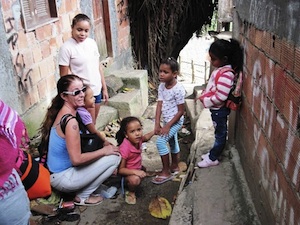 From your website and from your pictures one feels a great enthusiasm, a great strength of character, an immense energy, but I assume that there have been – and there are – also moments of difficulty and discomfort in some area. Is it so?
From your website and from your pictures one feels a great enthusiasm, a great strength of character, an immense energy, but I assume that there have been – and there are – also moments of difficulty and discomfort in some area. Is it so?
Indeed. We live life with enthusiasm and inexhaustible passion, but it is worth remembering that the Rocinha was “pacified” in November of 2011 with the arrival of the UPP (Unidad de Policia Pacificadora) after more than 40 years of unchallenged rule by drug traffickers. Many moments of fear, violence, and pain. The residents of Rocinha have lived for so long as helpless victims of the clash between police and traffickers, in a logic of power far more complex than their pain, and even more unacceptable given the profound social inequality of the country, even today.
Is there anything you want to tell us about The smile of my children that is not already contained in the site?
The smile of my children was born from a personal impulse, my need to adhere to the Gandhian concept of the “Be the change you wish to see in the world.” First with my family, then with my husband and then thanks to my colleagues, we are creating something very special, at least for us. In our group there is authenticity, trust in the future, passion, there is a gratitude for life (we suffered many losses, as I said before). And then there is a great ideal that accompanies us, especially in adversity. This ideal is called unconditional LOVE and dedication to others.
To give you an example: my husband and I also work as tour guides to try to weigh as little as possible on the finances of the non-profit organization and to give our projects the greatest percentage of the donations we receive. Currently more than 80% of the revenue is used directly for the projects and the activities carried out and to improve the educational performance offered by our facilities. Let me say that also the rest of the team puts the economic issue at a lower level than the force of the ideal that never abandons us: education changes lives. The path towards a profound change, the need to promote, with humility and commitment, the education of new generations is a factor that you can not separate from the essence of this organization. I add, and hope not to commit the sin of modesty, that I am very proud of the professionals who work with me, mostly women of course.
How is your relationship to Italy, after so many years in Brazil?
Italy is like a mother for me! It is the solidarity network of friends that with passion and perseverance support the cause of Smiles, without whom we could not continue our daily struggle. It is the pleasure of finding the good food, art and culture of the Italian masters.
But home, for me, is here in the community of Rocinha.
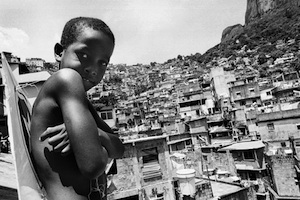 If you suddenly found yourself at the starting point, when you were still in Italy ten years ago, is there anything you would do differently? Or you would not do? Or that you have not done and would do?
If you suddenly found yourself at the starting point, when you were still in Italy ten years ago, is there anything you would do differently? Or you would not do? Or that you have not done and would do?
I would do everything again, including errors! As I always say, the years spent in the favelas are the most beautiful years of my life. Such dedication, passion, hard work and suffering, but nothing compared to the beauty of our children who learn to dream, to our young people that create a different future for their lives. Such a privilege must be celebrated every day, every moment, in joy and in sorrow, as they say.
Any future project?
Thank you for this question! I am particularly attached to the objective 2013 of Smile: we are collecting the necessary funds to start the renovation of the first Literary Café in Rocinha, the Garagem das Letras. What is now a garage will soon become a cultural center, a bar of natural products, an internet point and a place of social inclusion. A new concept of vocational training in the Rocinha, the Garagem, will be run by the young, creating extraordinary opportunities for social enterprise that we want to promote more and more frequently, so as to create concrete opportunities for human emancipation for the people of this wonderful Comunidade. I conclude by quoting the motto that inspires my life: “A dream you dream alone is only a dream. A dream you dream together is reality. ” John Lennon
A thank you as big and colorful as Rocinha to Claudia and all of you! Come visit us soon!
Il Sorriso dei miei Bimbi Onlus
www.ilsorrisodeimieibimbi.org

